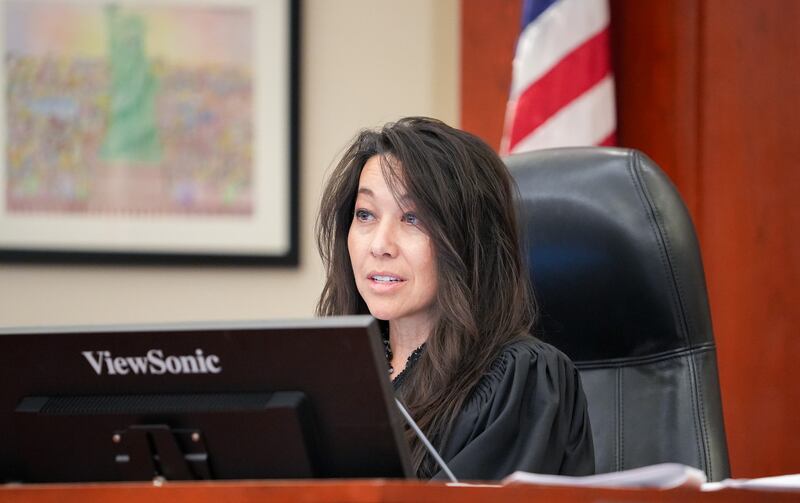A Utah judge on Tuesday denied a request from state lawmakers to stay her earlier ruling tossing the state’s congressional maps ahead of the 2026 midterm elections.
The initial ruling issued last month by 3rd District Judge Dianna Gibson declared that the current maps can’t be used “in any future elections” and proposed a timeline to redraw the political boundaries to comply with a voter-led initiative creating an independent redistricting commission. Lawmakers had asked Gibson to stay that ruling to give the Legislature more time to redraw the maps.
Gibson declined in a ruling Tuesday, but lawmakers will get additional days to work with after attorneys for Lt. Gov. Deidre Henderson said in a separate court filing that new maps should be submitted by Nov. 10 of this year, after arguing for an earlier deadline of Nov. 1.
“The people of Utah are entitled to proceed in the 2026 election with a lawful congressional plan designed in compliance with Proposition 4’s traditional redistricting standards and its prohibition on partisan gerrymandering,” Gibson wrote Tuesday. “By granting a stay and proceeding with the 2026 election under the current 2021 Congressional Plan, this court would be sanctioning the Legislature’s violation of the people’s constitutional right to reform their government through redistricting legislation.”
Gibson’s ruling notes that redistricting efforts have taken place on shorter timelines than currently proposed and cited recent efforts by Texas Republicans to redraw their maps to favor Republicans in the midterms at the behest of President Donald Trump.
“And, as widely publicized, Texas recently redistricted in rather short order, and other states, including California, are contemplating redistricting between now and the 2026 elections, suggesting to this court that there is time to redistrict and comply with Proposition 4," Gibson wrote.
The case in question has been ongoing since 2022, when plaintiffs alleged lawmakers violated citizens’ rights to determine the makeup of their government when they altered the ballot proposition that created an independent commission to draw the maps. Lawmakers changed the commission’s role to an advisory one and ultimately adopted its own set of maps in 2021.
Because the Utah Constitution gives “the people of the state of Utah” equal lawmaking power to the state Legislature, the plaintiffs said, the Legislature acted unconstitutionally when it changed the proposition.
The Utah Supreme Court ruled last summer that lawmakers overreached by changing the initiative, with Justice Paige Petersen writing that “constitutional provisions limit the Legislature’s authority to amend or repeal an initiative that reforms the government.”
The denial of the request to stay the ruling will allow lawmakers to appeal to the Utah Supreme Court, though it’s unclear if the five justices will view the lawmakers’ arguments sympathetically after unanimously siding against the Legislature last year.

